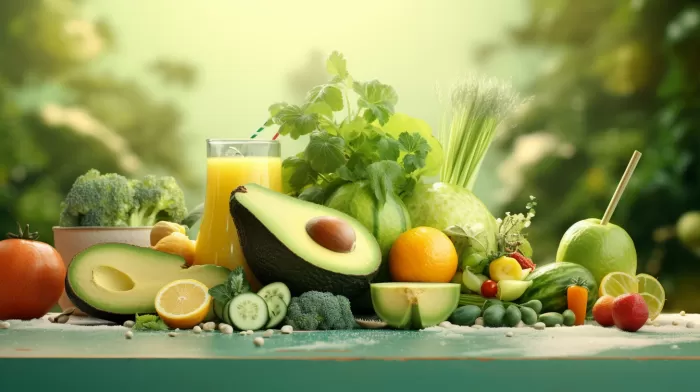Summer bloating can be an unwelcome side effect of overindulging in barbecues, cocktails, and late-night parties. With the hot summer weather making bloating even worse, it’s time to address the problem and restore your energy with natural solutions. Here, we’ll discuss the causes of summer bloat and provide effective solutions to help alleviate the problem while also benefiting your overall wellness.
Understanding Bloating and Water Retention
Bloating and water retention can be caused by numerous factors, including sodium and potassium imbalances, hormonal activity, overeating, indigestion and gut inflammation, kidney function, and genetics. Overconsumption of salt is often blamed as a major culprit, as too much salt can make your blood volume rise and attract water from cells in an attempt to maintain the sodium balance critical to cellular function.
Although sodium is an important mineral, many of us consume more than the recommended 1,500-2,300 mg per day. Opting for a mineral-rich, unprocessed salt like Celtic or Himalayan over regular table salt can help reduce bloating and fluid imbalances.
Addressing Bloating
To help your body effectively flush out excess salt, drink plenty of filtered water and limit your salt intake to minimal amounts of mineral-rich varieties. Not only will this help combat bloating and water retention, but increasing your potassium intake will also help balance fluid retention and promote circulation. Some potassium-rich foods include tomatoes, melons, winter squash, sweet and white potatoes, yogurt, asparagus, and bananas.
Swelling during the summer occurs because high heat and humidity can cause blood vessels and capillaries to expand, allowing more fluid to fill the spaces between organs and tissues. Chronic inflammation, especially in the digestive tract, factors into this as well, and it tends to exacerbate with rising temperatures.
Since poor circulation can create stagnant areas of toxins that generate more inflammation and bloating, addressing both inflammation and circulation is crucial. This allows the body to cool down and fluids to flow more freely.
Improving Digestion
Improving digestive health is central to addressing bloating and stagnation issues. A healthy digestive system plays a significant role in nutrition, detoxification, immunity, neurological health, and more.
To reduce inflammation in the digestive tract, focus on a diet that’s rich in cleansing, detoxifying, and alkalizing vegetables and small amounts of fruits. Some examples include celery, dandelion greens, parsley, cilantro, basil, arugula, cucumber, melon, zucchini, blueberries, raspberries, blackberries, avocado, broccoli sprouts, peas, sweet potatoes, and squash.
Include healthy fats from sources like olives, avocados, coconut, flaxseeds, chia seeds, and walnuts.
Sprouting legumes such as mung beans and garbanzo beans can add extra detoxification and anti-inflammatory benefits to your diet, which can help reduce bloating.
Avoiding Pro-Inflammatory Foods
Stay away from pro-inflammatory foods such as dairy (with unsweetened yogurt as an exception), grains (particularly gluten), sugar and sweeteners, alcohol, processed or non-organic meats, and packaged foods. Instead, opt for a healthier, more balanced diet that can help keep bloating under control and promote overall wellness.
Drinking plenty of filtered water and cooling herbal teas, such as mint, hibiscus, and lemon balm, can also help combat bloating and support proper digestion.
Conclusion
By addressing bloating and inflammation through dietary changes and improving circulation, you can enjoy a more comfortable summer without the discomfort and inconvenience of bloating. Moreover, these changes can contribute to better overall health and wellness, as you embrace a more balanced, anti-inflammatory diet and support a healthier digestive system.



![8 Simple Rules to Refresh Your Body with a Healthy Cleanse [See Pictures]](https://naturalhealthreserve.com/wp-content/uploads/2024/01/8-rules-healthy-cleanse-slideshow-300x168.webp)